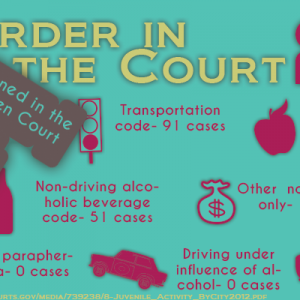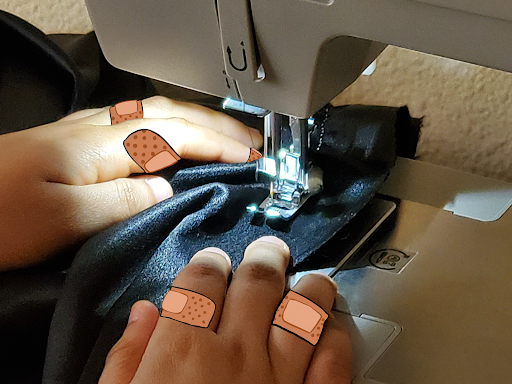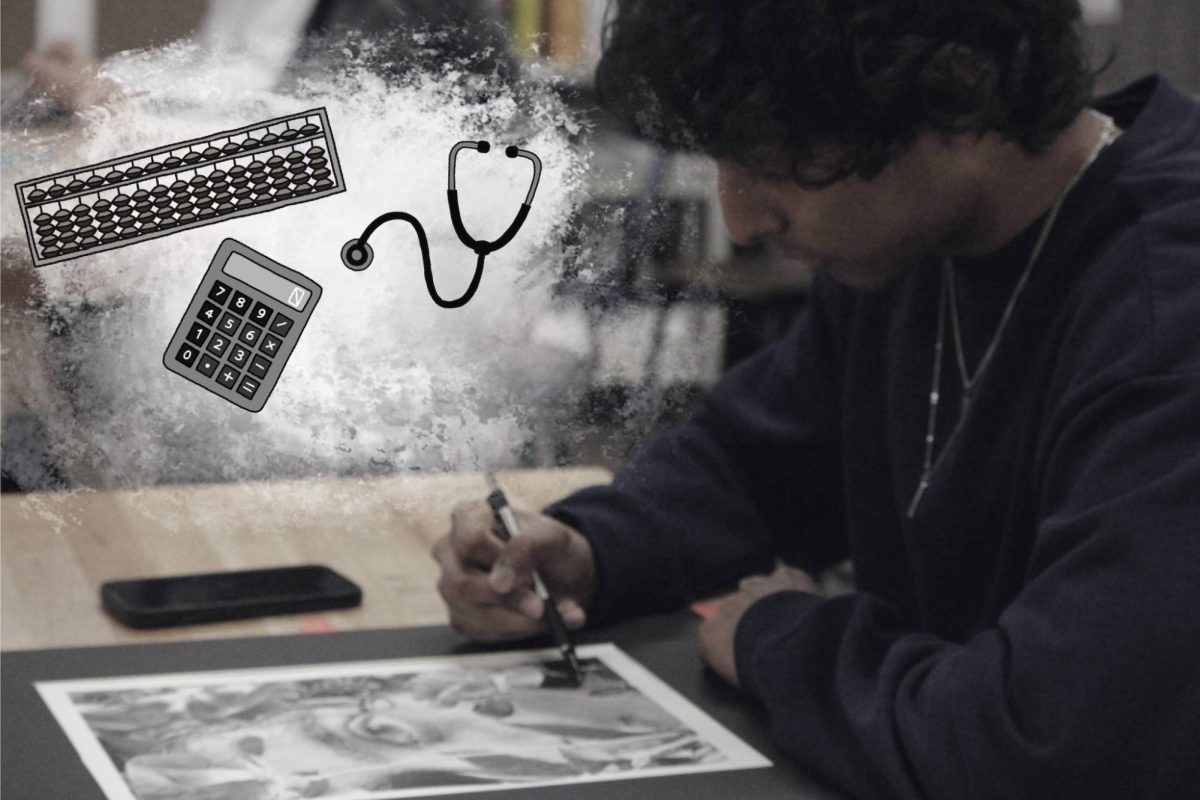Tanya Raghu
Staff Writer
@tanya_raghu
You take a glance at the time and realize it is already seven o’clock, half an hour late for soccer practice. Struggling to get organized, you grab your car keys while running to your car.
Frustrated at the number of stop signs down your street with no cars around, you rashly decide to run through one, only to regret your decision seconds later.
You are charged by a policeman hiding in the most unexpected position for a Class C Misdemeanor that will go on your permanent record, also causing your insurance rates to skyrocket.
Given your citation, you have three options to fix and learn from your mistake: go through the deferred disposition probation program, complete the defensive driving course or go through the teen court program.
You and your parents decide to go through the teen court process which most importantly can erase the misdemeanor off your record.
In place of having to pay a hefty fine and the offence causing permanent damage, teens have to perform a certain verdict comprised of community service, a trial in court and attend a jury term.
The most common offences seen in the Coppell teen court are traffic offences: speeding tickets, running stop signs and parking tickets. The court only dismisses Class C Misdemeanors not related to alcohol, drug or tobacco offences.
Teens must first talk to the judge about their mistake in order to be eligible for a hearing. Later, they will go through an application process and pay $27 as a court fee, peanuts compared to a real trial. After setting up a court date, they will have a trial in court in front of their peers and be sentenced to a jury term and community service, decided by other teens.
Maria Fernandez is the Coppell teen court juvenile case manager and thinks the teen court option is a great educational opportunity.
“The whole entire teen court program is run by volunteers; the only thing I do is if they don’t understand a certain charge and if they want me to explain, that’s what I’m there for, and signing the timesheets,” Fernandez said.
The teen court volunteer team consists of defence attorneys, prosecution, marshalls for security, adult clerk volunteers, juries and real judges.
As a freshman, I volunteered in the jury box and found my experience beneficial and rewarding. The program gave an insight into the importance of enforcing the law in order to make teens responsible for their actions. Seeing other teens stories made me more aware of my actions and the precautions I should take as a driver and my duty as a global citizen.
“Without volunteers, we can’t run the program,” Fernandez said.
Being involved in the teen court program is a very hands–on experience, ideal for students interested in law. There is a training process that starts in the jury box, next a shadowing experience, and finally as an attorney for the cases which occur twice a month.
Pallavi Nanu, a North Hills Preparatory junior, is a regular teen court volunteer and thinks the program can help serve teens sentenced in court along with herself.
“Teen court gives me the opportunity to expand my horizons by learning small things about the law that many are not aware of,” Nanu said.
Sujal Manohar, a North Hills Preparatory senior, has been a teen court volunteer attorney for three and a half years, and thinks the program can really help teens make better choices.
She has commonly seen cases on speeding, traffic violations, incorrect turns and in rare cases, curfew, assault and trespassing.
“I have learned a lot about the law and how the process works, and all the judges are attorneys so we get good advice,” Manohar said.
The majority of teen or youth courts are guided by the National Association of Youth Courts (NAYC). The NAYC serves as a focal point from where guidelines and regulations regarding the cases are administered.
Most major cities have a teen court center to help juveniles change their ways as a person, and make the experience educational and rewarding so that their future is not tainted by their record.
In Coppell, Fernandez finds the trend that about two years ago, there was a decrease in crimes and recently, the crime rate has been gradually increasing.
“It’s nice being apart of something that has the power of changing people’s lives, sometimes not for the better but it gives them a sense of responsibility,” Nanu said. “It allows them to evaluate their actions and I like helping people realize [their responsibilities].”















